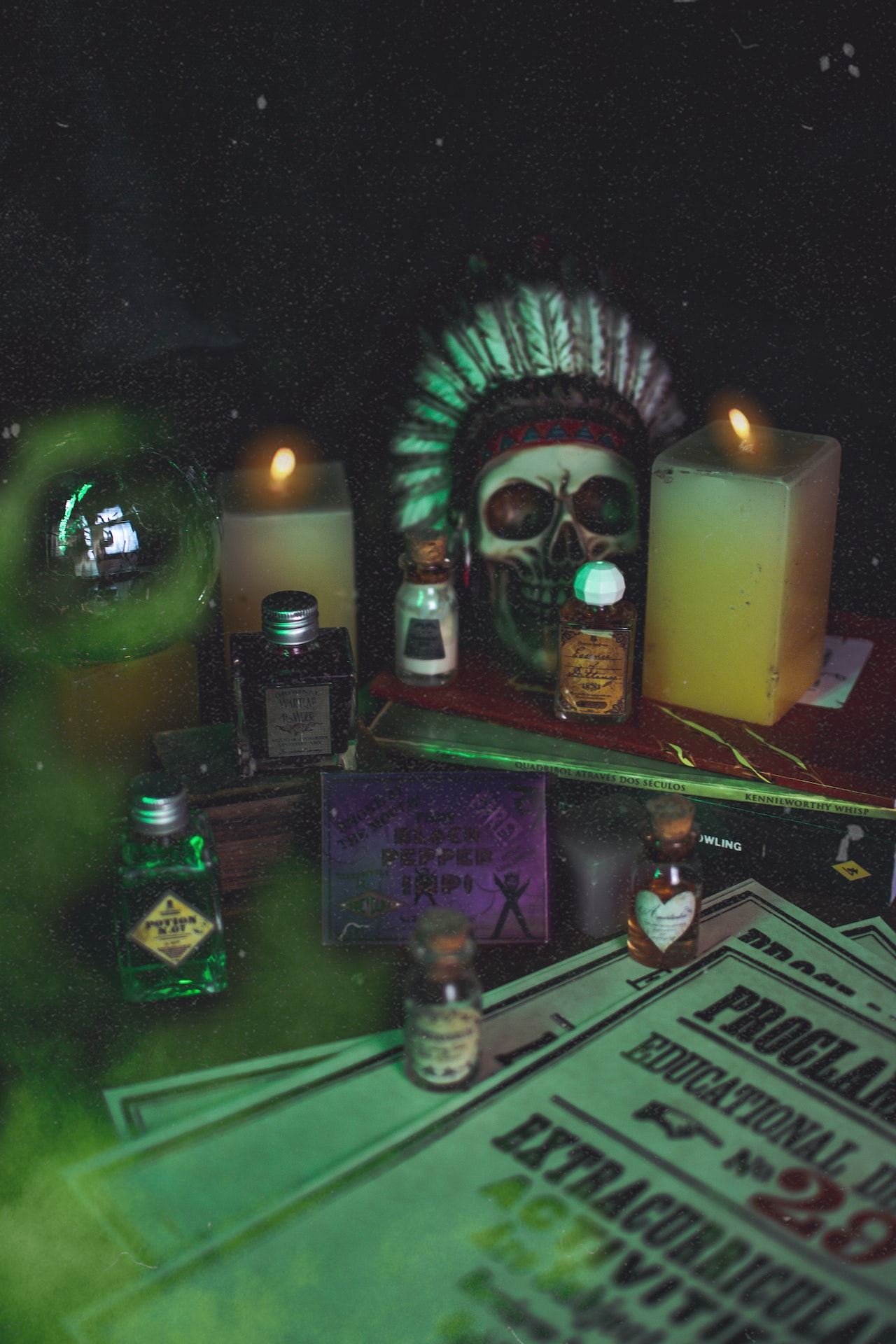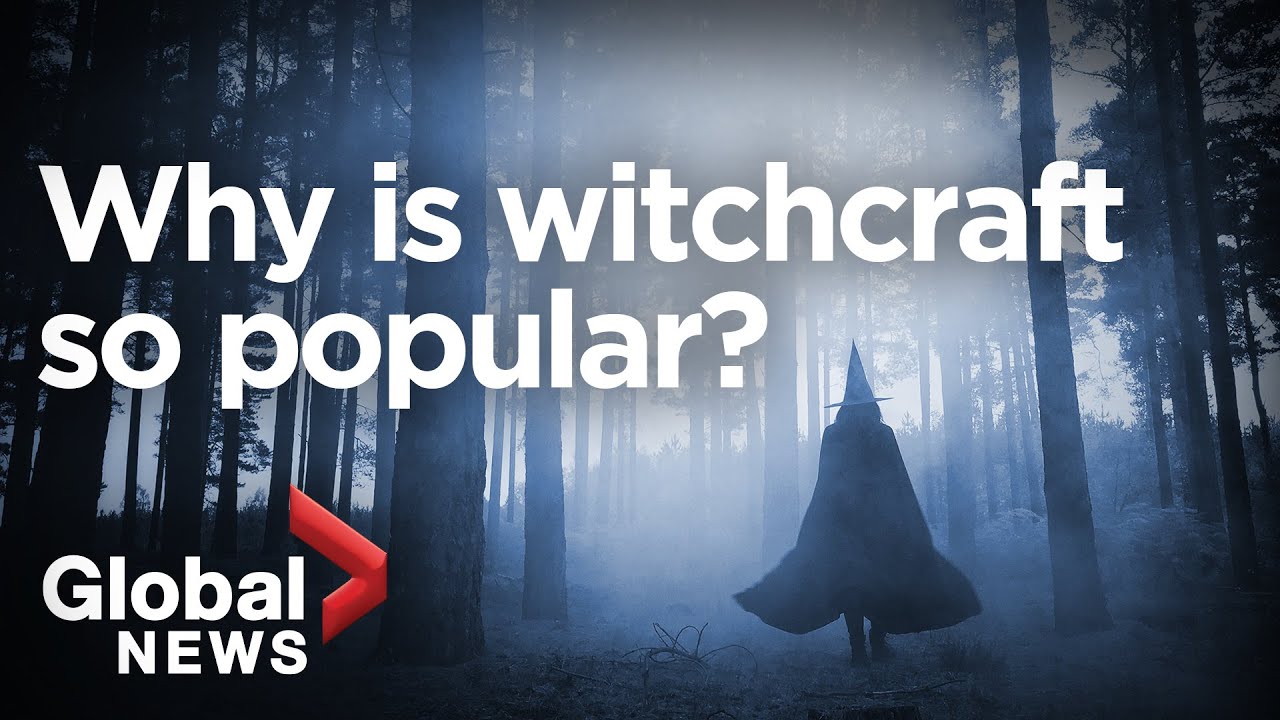What Is Witchcraft? Unveiling The Mysteries
What is witchcraft? This is a question that has been asked for centuries, and the answer varies depending on who you ask. For some, witchcraft is a religion, while for others, it is a form of magic or divination.
Author:Georgia AshcroftReviewer:Ava MartinezApr 13, 2023119 Shares1.9K Views

What is witchcraft? This is a question that has been asked for centuries, and the answer varies depending on who you ask. For some, witchcraft is a religion, while for others, it is a form of magicor divination.
Witchcraft has been associated with mystery and fear, but it has also been embraced by those who seek spiritual fulfillment and personal empowerment.
In this article, we will explore the concept of witchcraft and the different perspectives on what it means.
What Is Witchcraft?
Witchcraft refers to the practice of magic, often involving the use of spells, incantations, and other rituals, for the purpose of influencing events or people. It is a practice that has existed for centuries and has been embraced by different cultures and societies in various forms.
At its core, witchcraft is a spiritual practice that involves tapping into the power of nature and the universe to bring about desired outcomes. It is often associated with paganism, which is a term used to describe religions that worship nature and believe in multiple gods and goddesses.
Despite its reputation for being associated with evil and darkness, witchcraft is not inherently good or bad. Like any other practice, it is ultimately up to the practitioner to determine the intent and morality behind their actions.
In recent years, witchcraft has seen a resurgence in popularity, with many people embracing it as a form of self-expression, spirituality, and empowerment.
It has become a way for people to connect with nature, explore their inner selves, and find meaning and purpose in their lives.
History Of Witchcraft
Witchcraft has a long and complex history that spans many cultures and time periods. The origins of witchcraft are not entirely clear, but historians believe that it dates back to pre-Christian Europe, where it was often associated with pagan religious practices.
The word "witch" comes from the Old English word "wicca," which means "wise one" or "sorcerer."
During the Middle Ages and the Early Modern period, witchcraft was often seen as a form of heresy and was severely punished by the Christian church.
This led to the infamous witch hunts, which resulted in the torture, imprisonment, and execution of tens of thousands of people, mostly women.
In the 20th century, witchcraft experienced a revival with the emergence of modern Wicca, a new religious movement that draws on pre-Christian beliefs and practices.
Today, witchcraft is recognized as a legitimate spiritual practice by many people around the world, although it still faces some discrimination and misunderstanding in some communities.

The rise of witchcraft: why the magic of the past still enchants us
Types Of Witchcraft
Witchcraft is a broad term that encompasses various traditions and practices. Here are some of the most well-known types of witchcraft:
Wicca
Wicca is a modern Pagan religion that was founded in the mid-20th century by Gerald Gardner. Wiccans worship a goddess and a god, and often practice magic and divination.
Traditional Witchcraft
Traditional Witchcraft is a term used to describe various forms of witchcraft that predate Wicca. These traditions often focus on working with local spirits and ancestors and may incorporate elements of folk magic and herbalism.
Solitary Witchcraft
Solitary witchcraft is a practice that is performed alone, rather than in a group or coven. Solitary witches may follow a specific tradition or create their own practices.
Eclectic Witchcraft
Eclectic witchcraft is a practice that draws from multiple traditions and beliefs. Eclectic witches may take elements from Wicca, traditional witchcraft, and other sources to create their own unique practice.
Kitchen Witchcraft
Kitchen witchcraft is a practice that focuses on using everyday objects, such as herbs and spices, for magical purposes. Kitchen witches may also incorporate cooking and baking into their practice as a form of ritual.
Hedge Witchcraft
Hedge witchcraft is a term used to describe witches who work with the liminal space between worlds, such as the boundary between the physical world and the spirit world.
Hedge witches may use divination, trance work, and other techniques to connect with spirits and gain insight into the unseen world.
These are just a few examples of the many types of witchcraft that exist. Witchcraft is a diverse and ever-evolving practice that continues to grow and change with each new generation of practitioners.
Beliefs And Practices In Witchcraft
Witchcraft is a complex and varied belief system, encompassing a wide range of practices and beliefs. However, there are certain core beliefs and practices that are common to many forms of witchcraft:
- Nature-based Spirituality- Many witches believe in the divinity of nature and view the natural world as a sacred and interconnected system. They see the earth as a living organism, imbued with spiritual energy, and often practice their craft outdoors, in natural settings.
- Magic- The practice of witchcraft often involves the use of magic, which is the manipulation of natural energies and forces to bring about a desired result. This can take many forms, including spell-casting, divination, and ritual.
- Personal Responsibility- Witches believe that they are responsible for their own actions and the consequences that result from them. They also believe in the concept of karma, or the idea that one's actions will have consequences that will be reflected back upon them.
- Respect for All Life- Many witches adhere to a code of ethics that emphasizes the importance of treating all living beings with respect and compassion. This includes animals, plants, and humans.
- Connection to Ancestral Wisdom- Witchcraft often involves a connection to ancestral wisdom, with many practitioners drawing inspiration and guidance from the practices of their ancestors.
Misconceptions About Witchcraft
Witchcraft has been surrounded by various misconceptions and myths for centuries, leading to its demonization and persecution. Here are some of the most common misconceptions about witchcraft:
Witchcraft Is Associated With Satanism
This is perhaps the most prevalent misconception about witchcraft. While some witchcraft practices may involve the worship of deities, Satan is not one of them. Witchcraft predates Christianity and has no connection to Satanism.
Witchcraft Is Evil
Witchcraft is neither good nor evil; it is a practice that can be used for positive or negative purposes. The same can be said for any other religion or spiritual practice.
Witches Cast Spells To Harm Others
While there may be some practitioners who use spells for negative purposes, the majority of witches use their craft for healing, protection, and positive change.
All Witches Are Women
This is a common misconception, likely perpetuated by popular media. In reality, both men and women can practice witchcraft.
Witches Are Old And Ugly
This stereotype is also perpetuated by popular media, which often portrays witches as old, wrinkled women. In reality, witches come from all walks of life and are not defined by their appearance.
It's important to recognize and dispel these misconceptions in order to gain a better understanding of what witchcraft truly is.
People Also Ask
Is Witchcraft A Religion?
Witchcraft itself is not a religion, but it can be practiced within the context of a religion, such as Wicca or Paganism.
In these religions, witchcraft is viewed as a form of spiritual practice and is often used for healing, divination, and connection with nature.
What Are Some Common Tools Used In Witchcraft?
Witches often use various tools in their practices, such as a cauldron, athame (ritual knife), wand, chalice, candles, and herbs. These tools are believed to help focus energy and intention during spells and rituals.
Can Anyone Practice Witchcraft?
Anyone can practice witchcraft, regardless of their gender, race, or religion. It is a personal practice and can be tailored to an individual's beliefs and values.
Is Witchcraft Evil Or Dangerous?
Contrary to popular belief, witchcraft is not inherently evil or dangerous. It is a spiritual practice that can be used for both positive and negative purposes, just like any other form of energy or magic. It is important to approach witchcraft with respect and responsibility.
Final Thoughts
What is witchcraft? Witchcraft is a complex and diverse practice that has existed for centuries and is still widely practiced today.
It encompasses a range of spiritual beliefs and practices, including ritual magic, divination, and the use of herbs and crystals.
While often portrayed negatively in popular culture, witchcraft is a legitimate spiritual practice that is deeply meaningful to many practitioners.
Whether you are interested in learning more about witchcraft for personal growth or to connect with a wider community, there are many resources available to help you explore this fascinating and multifaceted tradition.

Georgia Ashcroft
Author
Georgia Ashcroft is deeply immersed in the mystical realms of astrology, tarot, and magic, where she uncovers hidden truths and illuminates pathways to self-discovery. With a rich background in esoteric studies, Georgia's articles seamlessly blend ancient wisdom with contemporary insights, offering readers a profound understanding of cosmic energies and their impact on daily life.
Her writing serves as a guiding light for those seeking to harness the power of the universe and embrace their spiritual journey.

Ava Martinez
Reviewer
Gonga Mwangi, a mysterious practitioner immersed in divination cards, witchcraft, voodoo, and spirituality, possesses an enigmatic presence that captivates the senses. With profound mastery of the cards, Gonga unveils hidden truths and offers guidance through symbolic interpretations.
Rooted in ancient arts, Gonga's expertise in witchcraft and voodoo empowers them to shape reality through powerful rituals and conjurations. Her spiritual connection harmoniously blends with these practices, allowing her to commune with higher realms and harness transformative energies.
Latest Articles
Popular Articles